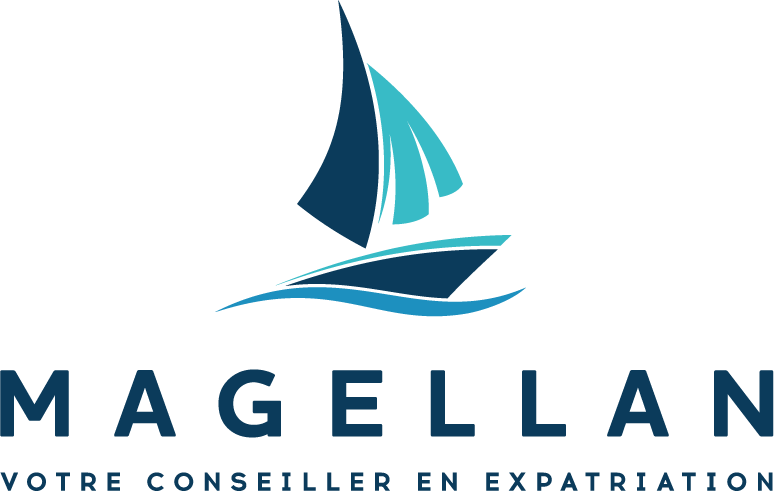
Mauritius Finance Bill 2025: New tax, residency, and investment rules for expats and investors
The Mauritian government has recently unveiled the Finance (Miscellaneous Provisions) Bill 2025, a crucial step following the national Budget presented in June. Beyond headline announcements, the fine print of this bill deserves close attention from investors, prospective expatriates, and business owners already established on the island. This draft law, currently under debate and slated for a vote in Parliament in the coming weeks, introduces new tax measures, revises the conditions for the Occupation Permit, and provides updates for the real estate sector. The aim is to maintain Mauritius’s attractiveness while reinforcing transparency and structure in its tax and regulatory framework.
Since 2010, Magellan has been assisting individuals and businesses with relocation and investment projects in Mauritius. Renowned for its expertise in residence permits, business creation, and relocation support, the firm has advised more than 300 clients from France, South Africa, and beyond. Drawing on this experience, Magellan provides here a detailed breakdown of the Finance Bill 2025 to help investors and expats make informed choices.
Stricter and clearer requirements for the Occupation Permit
The Occupation Permit (OP) combines both residence and work authorization. Different categories apply depending on the applicant’s profile: investor, self-employed, professional, or young graduate.
The Finance Bill 2025 significantly revises several categories, with the stated goal of professionalizing and tightening the framework.
Investor – USD 50,000 option
- Initial investment: USD 50,000.
- Funds must be transferred within 60 days of the permit being issued.
- Revenue target: MUR 20 million over five years.
- Renewal condition: minimum annual turnover of MUR 5 million from year six onward.
Investor – new USD 100,000 option
- Initial investment: USD 100,000.
- Reduced revenue target: MUR 15 million over five years.
- Renewal condition: same as above (MUR 5 million annual turnover from year six onward).
This new alternative lets applicants choose between:
- A higher upfront capital requirement but lower business targets, or
- A smaller initial investment with the obligation to generate more revenue.
Self-employed (Freelancer)
- Initial investment: USD 50,000.
- Must present three letters of intent, at least two from Mauritian clients.
- Revenue targets: MUR 750,000 in the first year and MUR 6 million over five years.
- Renewal condition: annual revenue of at least MUR 1.5 million.
These changes highlight a clear intention to ensure freelancers contribute meaningfully to the local economy, particularly through the requirement to work with Mauritian clients.
Young Professionals
- The permit is now open to holders of professional certifications recognized in Mauritius, not just university graduates.
- This widens access to qualified candidates in technical or specialized fields.
In short, the Finance Bill both raises the bar and adds flexibility, making the conditions more transparent for applicants while underlining the economic contribution expected.
Taxation: Introducing the Fair Share Contribution
On the fiscal front, the most talked-about measure is the introduction of the Fair Share Contribution, which is an additional levy, applied on top of income tax or corporate tax, but only beyond certain thresholds.
For individuals
- Rate: 15% on income above MUR 12 million.
- Effective marginal rate: up to around 35%.
- Applies to residents earning more than MUR 3 million net annually, unless they already pay an equivalent tax abroad.
Notably, the bill does not label this as “income tax,” which could limit the scope for claiming foreign tax credits in countries that have double-taxation agreements with Mauritius.
For businesses
- Applies only to businesses with taxable income above MUR 24 million (excluding Global Business Companies, or GBCs).
- Contribution: between 2% and 7.5% on the entire taxable income (not progressive).
The explicit exclusion of GBCs confirms Mauritius’s intention to remain attractive as an international hub for company domiciliation.
Duration
The Fair Share Contribution is temporary, applying for three years only: from 1 July 2025 to 30 June 2028.
Qualified Domestic Minimum Top-Up Tax (QDMTT)
In line with OECD international standards, Mauritius is also introducing the Qualified Domestic Minimum Top-Up Tax (QDMTT).
- Effective from fiscal years starting on or after 1 July 2025 (meaning any financial year beginning after 31 December 2024).
- Companies must file their DMTT return within 15 months of year-end.
- Targets multinational groups with revenues above EUR 750 million, ensuring an effective minimum tax rate of 15% (OECD Pillar Two).
This aligns Mauritius with global tax reforms while maintaining competitiveness.
Real estate: Strong appeal with tighter regulation
The bill also indicates changes to the property sector, aiming to preserve Mauritius’s status as a sought-after destination for residential and tourism-related investment, while ensuring greater transparency and legal efficiency.
Though operational details remain to be clarified, the measures are expected to cover:
- Rules for property acquisition by foreigners.
- Real estate tax provisions.
- Administrative procedures for Integrated Residential Schemes (IRS), Real Estate Schemes (RES), and Property Development Schemes (PDS).
A strong message to expats and investors
These measures reflect Mauritius’s broader strategy:
- Preserve international appeal with favorable rules for GBCs and foreign investors.
- Strengthen the country’s fiscal credibility with global institutions through the QDMTT.
- Tighten economic immigration rules by imposing clear and verifiable financial criteria for Occupation Permits.
- Consolidate real estate investment by improving clarity and transparency.
For expats planning relocation, it is now essential to anticipate these changes, particularly regarding income and wealth structuring.
Final thoughts
The Finance Bill 2025 marks a turning point for the Mauritian economy. Beneath the technical adjustments lies a clear strategy: attract skilled professionals, reassure international investors, and set firm expectations for new arrivals’ economic contribution.
Mauritius reaffirms its ambition to remain an open, competitive platform—while strengthening discipline in its tax and regulatory framework.
If you’re considering relocation or investment in Mauritius, take the time to fully understand these new rules to optimize your plans and protect your projects. Magellan is here to guide you, anticipate the changes, and help you thrive in this evolving environment. Contact us now to benefit from our expertise.
FAQ – Mauritius Finance Bill 2025
What is the Finance Bill 2025?
It is the law that translates the measures announced in the National Budget 2025 into legislation, especially on taxation, property, and residence permits.
What’s new for express and prospective expats in Mauritius?
Key updates concern the criteria for obtaining and renewing the Occupation Permit, with an emphasis on clarity and stricter regulatory standards.
Does the Finance Bill 2025 impact investment rules in Mauritius?
Yes. Several provisions affect real estate, taxation, and corporate structuring, directly impacting foreign investors.
Why is professional guidance important?
The practical implications vary depending on whether you are an entrepreneur, investor, or individual expat. Specialist advice helps anticipate impacts and secure compliance.
How can Magellan help?
For more than a decade, Magellan has supported expats and investors in Mauritius—from residence permits and business setup to tax and relocation services.







Leave a Reply